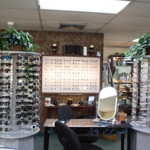
Eye Wear Unlimited
CLOSED NOW
Today: Closed
Tomorrow: Closed
44 Years
in Business
3 Years with
Yellow Pages
 auto services
auto services beauty
beauty home services
home services insurance
insurance legal services
legal services medical services
medical services pet services
pet services restaurants
restaurants
Phone: (706) 324-2073
Address: 1140 13th Street, Columbus, GA 31901
Website: http://www.eyewearunltd.com